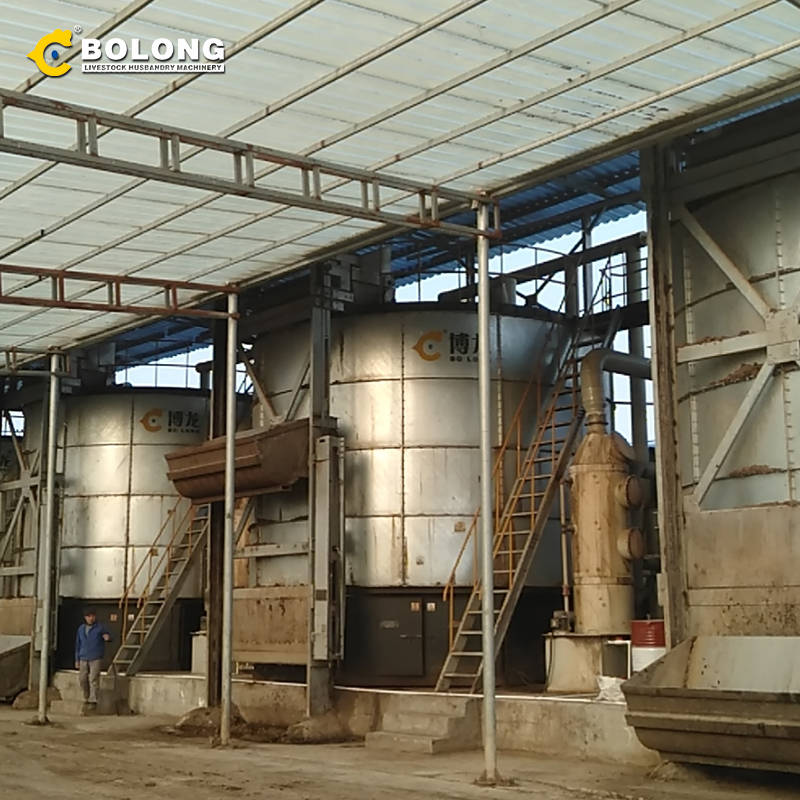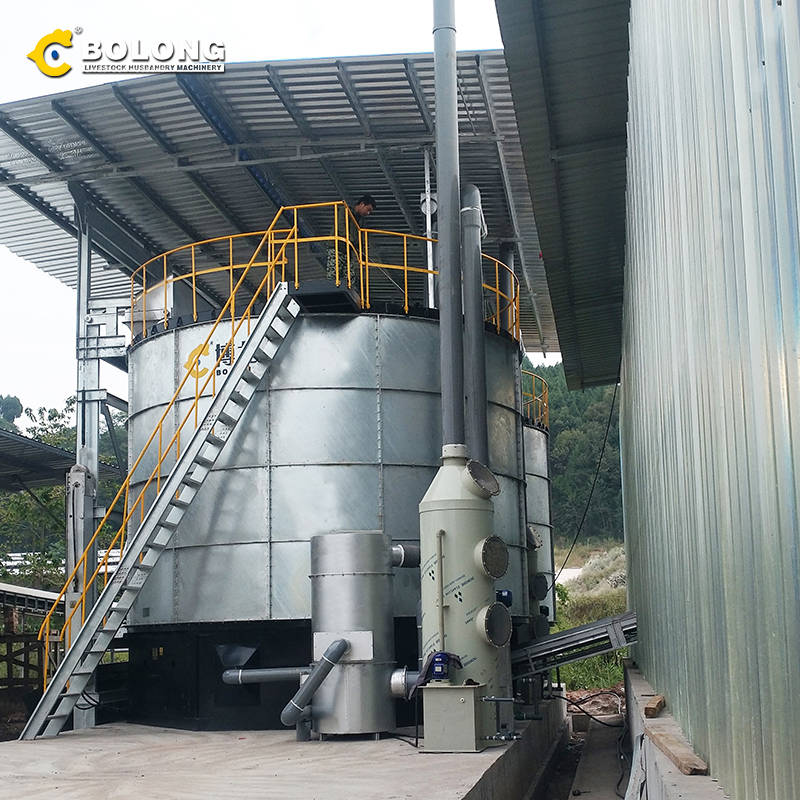An organic fertilizer fermentation tank is a modern mechanical equipment that can convert agricultural waste such as livestock and poultry manure and crop straw into high-quality, environmentally friendly organic fertilizer in about seven days through microbial fermentation. The fully enclosed design, efficient fermentation process and automated control system make the organic fertilizer fermentation tank play an important role in organic agriculture, environmental protection and other fields, providing strong support for promoting sustainable agricultural development.

First of all, this equipment is particularly “environmentally friendly”. It can turn seemingly useless “garbage” such as livestock and poultry manure and crop straw into nutrient-rich organic fertilizer through microbial fermentation. In this way, it not only solves the problem of agricultural waste disposal, but also reduces the use of chemical fertilizers and protects the soil and environment.
Secondly, the organic fertilizer fermentation machine is particularly “efficient”. It can complete the fermentation process within 7 to 10 days, which is much faster than traditional composting. Moreover, this fermentation process is fully enclosed and is not affected by the outside weather, and can operate stably all year round. This means that it can provide us with high-quality organic fertilizer anytime and anywhere.
Furthermore, this equipment is particularly “energy-saving”. The internal insulation layer design makes the fermentation process almost unaffected by the outside temperature, greatly reducing energy consumption. Moreover, it can automatically complete the entire process of feeding, fermentation, temperature control, drying and discharging, reducing labor costs and improving production efficiency.
Finally, the organic fertilizer fermentation tank is also particularly “intelligent”. It uses an advanced automatic control system, which is simple and convenient to operate. Ordinary people can easily get started after simple training. At the same time, all parts in contact with feces are made of 304 stainless steel, which is corrosion-resistant and has a long service life.
In general, the organic fertilizer fermenter provides strong support for the development of organic agriculture with its environmental protection, high efficiency, energy saving and intelligence. It allows us to see the broad prospects of resource utilization of agricultural waste and injects new impetus into promoting sustainable agricultural development.

The application of organic fertilizer fermentation tanks is very extensive. It can not only be used for fertilizer production in organic agriculture to meet the needs of agricultural production, but also effectively reduce environmental pollution, realize the recycling of resources, and contribute to environmental protection. At the same time, it also provides new possibilities for the development of biomass energy such as biogas.
Organic fertilizer fermentation vessels are an indispensable part of organic agriculture. It can convert agricultural waste such as livestock and poultry manure and crop straw into organic fertilizers through microbial fermentation, which not only solves the problem of agricultural waste treatment, but also provides a high-quality fertilizer source for agricultural production. This kind of organic fertilizer can not only improve soil structure and increase soil fertility, thereby improving the quality and yield of crops and realizing the sustainable development of agriculture, but also it meets the standards of organic agriculture, which is conducive to improving the quality and market competitiveness of agricultural products.
Secondly, organic fertilizer fermentation tanks play an important role in resource recycling. In traditional agriculture, a large amount of agricultural waste is randomly piled up or burned, causing serious environmental pollution and waste of resources. The emergence of organic fertilizer fermentation tanks has made full use of these wastes and converted them into organic fertilizers, realizing the recycling of resources and reducing pollution to the environment.
In the process of organic waste conversion, it is converted into biomass biogas through anaerobic digestion. As a clean energy, biomass biogas can be used for cooking, heating, etc., reducing dependence on traditional fossil fuels.
In summary, organic fertilizer fermenters demonstrate the great potential of converting waste resources into valuable wealth, providing new directions and possibilities for the development of agricultural bioenergy in the future. Here I will give an example of practical application. Many farms and ranches will form upstream and downstream enterprises. By recycling livestock and poultry waste and crop straw, they are put into fermentation vessels, and the organic fertilizer produced is spread into farmland to promote crop growth and form a virtuous cycle. Therefore, the organic fertilizer fermentation tank will have a broader future with its significant advantages of sustainable development!